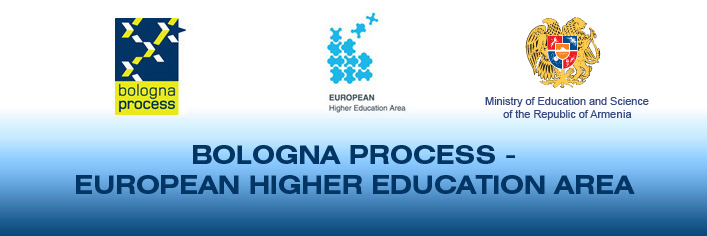What is “synchronized” over 9 years?
“Earlier, I knew that this is an excellent student, this is good, this is satisfactory, and this is not good at all. And now I need to add and subtract some numbers, from attendance until “self- thinking”, and grade in the system of 20-point score. Isn’t it clear that I will do it by eye estimate, and I would not want to spend time on these calculations and details, because I do know now who is worth of what”. Any lecturer who is older than average age thinks so about the so-called “Bologna process”. In other word, until now, 9 years after the time when Armenia has became a full member of this educational process, the attitude of the majority of faculty members and students is as follows: it is a formality and more bureaucratic red tape that particularly has nothing to do with the quality of education.
The notion of a common European educational area, of course, is attractive. Comparable curriculums and diplomas, which will be acceptable to the whole area, are also very much desirable. But, can we tell that they are really comparable, let’s say, in the case of Yerevan State University and the Universities of Heidelberg in Germany? The latter’s alumni, of course, will be accepted in our country with respect. It’s another question whether they will be able to apply their knowledge in Armenia, for example, in the fields of biology or economics. I do not think that they will have the same respect in Heidelberg over the diploma of the Yerevan State University. Of course, our brilliant alumnus will find a job there by his specialty, or our brilliant alumnus can continue his studies in Germany. But it was possible even when there was no Bologna process, there was no division between Bachelor’s and Master’s Degrees, the score of this bright alumnus was “5” and not “20,” and in the course of his study, he was not accruing a “credit”. In that case, what is “synchronized” with what over these 9 years?
About division between Bachelor’s and Master’s Degrees. Is it important for the Armenian private sector employer whether the professional has completed the first or second degree? It is perhaps necessary for some state institutions, but there apparently the standards are formal rather than contextual. The majority of students say that the subjects at MA course are usually repeated, which they had passed in BA course, and no new knowledge is added.
Read also
The enthusiasm of our government and education officials to join the Bologna process was particularly great before the last September 3. “The process has a deep political meaning: establishment of a united Europe with common political, economic, and social field, it is impossible without a common educational area”, was saying the Minister of Education and Science Armen Ashotyan on March 16, 2010. Now, this political component, if not completely vanished, however, is significantly reduced. Apart from the Customs Union countries, Russia and Kazakhstan are also full members of the Bologna Process, but there are also voices heard in these countries that the system is for the European rather than CIS labor market.
Recently, Minister of the Eurasian Economic Commission Tatyana Valovaya announced that so far the issue of establishing a common educational area in the Customs Union with the example of the Bologna Process is not raised. For now, the matter can only go around mutual recognition of diplomas and the free mobility of students. In Yerevan, Valovaya announced that they are expecting such initiatives from the Armenian side. However, I think that not everything depends on our initiatives.
ARAM ABRAHAMYAN























































